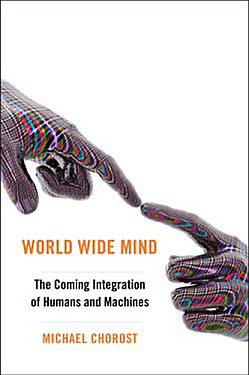- HOME
- INTRO TO THE FORUM
- USE AND MISUSE
- BADLY WRITTEN, BADLY SPOKEN
- GETTING
TO KNOW ENGLISH - PREPARING FOR ENGLISH PROFICIENCY TESTS
- GOING DEEPER INTO ENGLISH
- YOU ASKED ME THIS QUESTION
- EDUCATION AND TEACHING FORUM
- ADVICE AND DISSENT
- MY MEDIA ENGLISH WATCH
- STUDENTS' SOUNDING BOARD
- LANGUAGE HUMOR AT ITS FINEST
- THE LOUNGE
- NOTABLE WORKS BY OUR VERY OWN
- ESSAYS BY JOSE CARILLO
- Long Noun Forms Make Sentences Exasperatingly Difficult To Grasp
- Good Conversationalists Phrase Their Tag Questions With Finesse
- The Pronoun “None” Can Mean Either “Not One” Or “Not Any”
- A Rather Curious State Of Affairs In The Grammar Of “Do”-Questions
- Why I Consistently Use The Serial Comma
- Misuse Of “Lie” And “Lay” Punctures Many Writers’ Command Of English
- ABOUT JOSE CARILLO
- READINGS ABOUT LANGUAGE
- TIME OUT FROM ENGLISH GRAMMAR
- NEWS AND COMMENTARY
- BOOKSHOP
- ARCHIVES
Click here to recommend us!
TIME OUT FROM ENGLISH GRAMMAR
This section features wide-ranging, thought-provoking articles in English on any subject under the sun. Its objective is to present new, mind-changing ideas as well as to show to serious students of English how the various tools of the language can be felicitously harnessed to report a momentous or life-changing finding or event, to espouse or oppose an idea, or to express a deeply felt view about the world around us.
The outstanding English-language expositions to be featured here will mostly be presented through links to the websites that carry them. To put a particular work in better context, links to critiques, biographical sketches, and various other material about the author and his or her works will usually be also provided.
“Cyborg” writer predicts integration of man, machine, and Internet
A writer who is himself a cyborg of sorts—a tiny computer had been embedded in his skull to restore his hearing—has come up with a compelling book where he speculates that humanity will eventually evolve into a mass cyborg consisting of a worldwide network of computer-mediated minds. In World Wide Mind: The Coming Integration of Humanity, Machines, and the Internet (Free Press, 242 pages), technology theorist Michael Chorost proposes that humanity can incorporate the computer into its collective soul in a way that enhances communities and creative work instead of diminishing them.

Dr. Chorost, who went completely deaf in 2001 and had a cochlear implant in his head so he could hear again, says the experience of becoming part computer had actually made him more human. This became the theme of his first book, Rebuilt, where he recounts how the cochlear implant enabled him to enhance his creative potential. This time, in World Wide Mind, he envisions that a networked brain implant could connect people together in a concretely physical way, and at such high bandwidths that they might begin to interact like the two hemispheres of an individual human brain. “Such a linkage,” he says, “would upend the primordial assumption that I am Self, you are Other; that I am In Here, and you are Out There. The challenge to one’s identity would be terrifying but also thrilling, risky but also empowering.”
In “Imagining a World of Total Connectedness, and Its Consequences,” a review of World Wide Mind in the February 14, 2011 issue of The New York Times, Katherine Bouton says she finds the author’s curiosity about neuroscience technology and optogenetics research “contagious.” She says: “Michael Chorost is not only a clear and concise science writer, but also a visionary. The coming integration of humans and machines may be a bit further off than he thinks, but he convinced me that we will get there someday.”
Read excerpts from Michael Chorost’s World Wide Mind in The New York Times now!
Read Katherine Bouton’s review of World Wide Mind in The New York Times now!
Read Sue Halpern’s “Mind Control & the Internet” in The New York Review of Books now!
ABOUT THE AUTHOR:
Michael Chorost is an American writer and teacher. Born with severe loss of hearing due to rubella, his hearing was partially restored with a cochlear implant in 2001. He subsequently wrote a memoir of that experience, Rebuilt: How Becoming Part Computer Made Me More Human, which won the PEN/USA Book Award for Creative Nonfiction in 2006. He earned his B.A. at Brown University and studied computer programming, Renaissance drama, and cultural theory to earn his Ph.D. from the University of Texas at Austin. He has written for Wired, The Futurist, The Scientist, and Technology Review.







